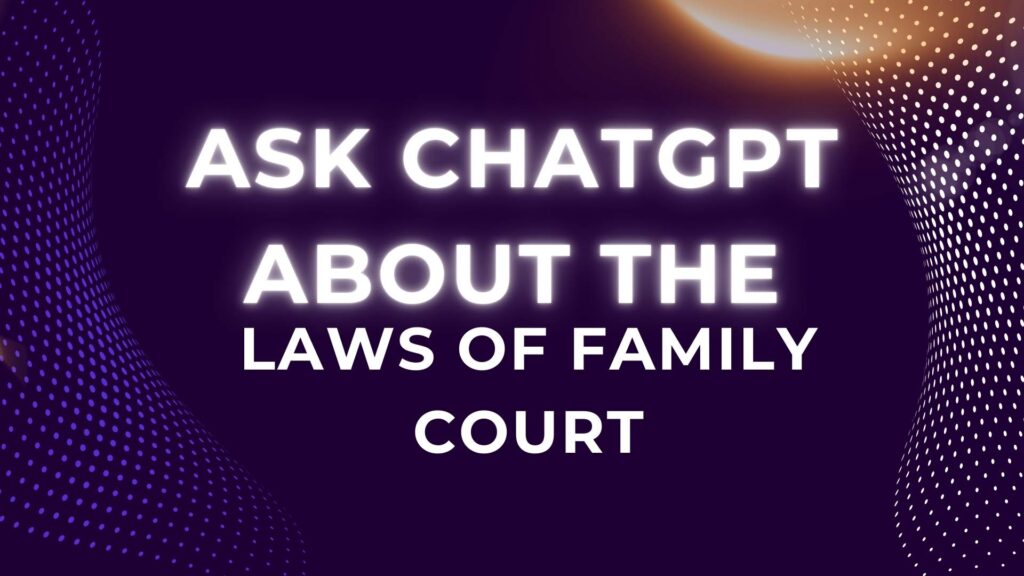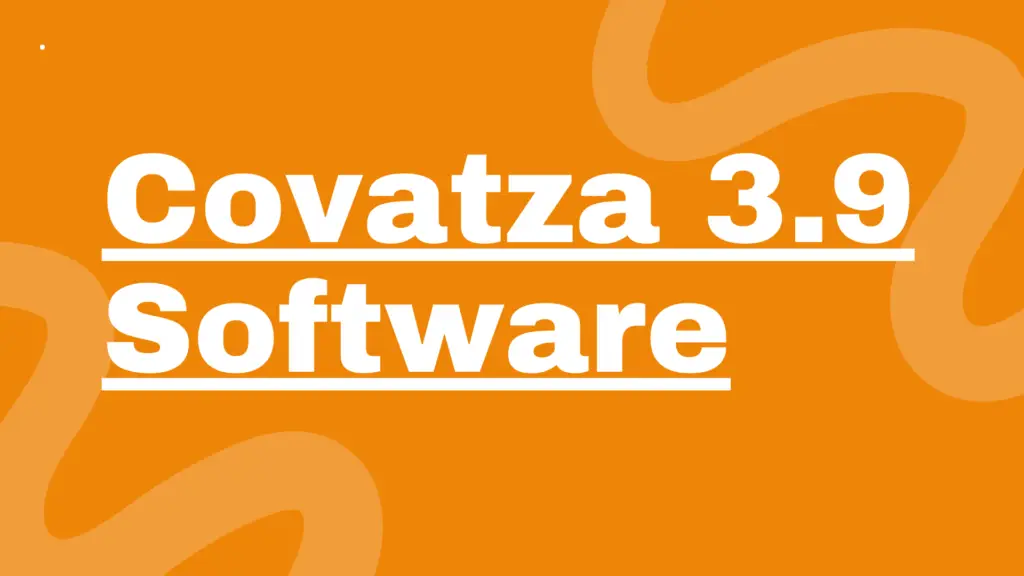Table of Contents

How to ask ChatGPT About the Laws of the Family Court:
Welcome to the comprehensive guide of How to ask ChatGPT About the Laws of the Family Court. This article outlines how to ask ChatGPT about family court laws, the potential benefits, and the limitations of using AI in legal contexts. Asking ChatGPT about the laws of family court can be a valuable resource for individuals navigating complex legal issues. However, to obtain accurate and relevant information, it is essential to frame your inquiries effectively.
Introduction:
Family law is a complex area of law that deals with issues like divorce, child custody, and adoption. If you’re going through a family law matter, it can be helpful to understand the relevant laws and procedures. ChatGPT, an artificial intelligence assistant, can be a useful tool for getting information about family court laws. However, it’s important to ask questions in a way that will give you the most accurate and relevant information. In this blog post, we’ll cover some tips for asking ChatGPT about family court laws and provide examples of well-crafted questions.
Crafting Effective Questions:
- Be Specific and Clear: When asking about family court laws, specificity is crucial. Instead of asking broad questions like “What are family court laws?”, focus on particular aspects, such as: “What factors do courts consider in child custody cases?” and “What are the legal requirements for filing for divorce in my state?”. Clear and concise questions will help ChatGPT generate more accurate responses.
- Provide Context: Including context in your questions can significantly enhance the quality of the information you receive. For example: “In the context of shared custody, what are the common considerations for a judge in California?”. By specifying the jurisdiction and the nature of your inquiry, you help the AI understand the nuances of your question.
- Use Legal Terminology: Utilizing appropriate legal terminology can improve the accuracy of the responses. For instance, instead of asking about “getting custody of my child,” you might ask about “the legal standards for obtaining sole custody in family court.”
Understanding the Limitations:
- 1. Not a Substitute for Professional Advice: While ChatGPT can provide general insights into family court laws, it is not a substitute for professional legal advice. Family law is complex and varies significantly by jurisdiction. AI-generated responses may not account for specific circumstances or the latest legal developments. Always consult a qualified family law attorney for personalized guidance.
- 2. Awareness of AI Limitations: AI tools like ChatGPT can sometimes produce inaccurate or misleading information, known as “hallucinations.” This can include fabricated case law or incorrect legal principles. Users should cross-reference any information obtained from AI with reliable legal sources or consult professionals to verify accuracy.
- 3. Privacy and Confidentiality Concern: When discussing sensitive legal matters, privacy is paramount. Using AI tools may raise concerns about data security and confidentiality. Unlike a lawyer-client relationship, interactions with AI do not guarantee the same level of privacy, which is crucial in family law cases.
Enhancing Legal Discussions:
Using insights gained from ChatGPT can facilitate more informed discussions with legal professionals. By asking targeted questions and understanding the basics of family law, individuals can better articulate their concerns and needs during consultations. This preparation can lead to more productive conversations and a clearer understanding of the legal options available.
Understanding Family Law:
Before diving into specific questions, it’s a good idea to have a basic understanding of family law principles. Family law varies quite a bit from state to state, so the first thing to know is what state’s laws apply to your situation. Some key concepts to be familiar with include:
- The “best interests of the child” standard used in custody decisions
- Grounds for divorce (e.g. irreconcilable differences, adultery, etc.)
- Equitable distribution of marital assets and debts
With a general grasp of these ideas, you’ll be better prepared to ask ChatGPT more targeted questions. Click Heres to Learn More About Family Laws
How to ask ChatGPT About the Laws of the Family Court: Divorce Procedures:
When asking about divorce procedures, specify the state and include details about your situation. For instance:
- “What are the legal requirements and typical timeline for getting a divorce in California? Do I need to be separated for a certain period first?”
This question provides the necessary context for ChatGPT to give a helpful response about the divorce process in California.
How to ask ChatGPT About the Laws of the Family Court: Child Custody and Visitation:
Child custody and visitation arrangements can be complex. To get useful information from ChatGPT, describe your specific circumstances. For example:
- “In a joint legal and physical custody arrangement in New York, how do courts decide which parent will be the primary residential parent? What factors are considered?”
Mentioning the type of custody and the state helps ChatGPT understand the nuances of your question.
How to ask ChatGPT About the Laws of the Family Court: Adoption Laws:
Adoption laws have many variations depending on the type of adoption and the state. Be specific about the type of adoption you’re interested in, such as domestic, international, or stepparent adoption. For example:
- “What are the legal requirements and process for a stepparent adoption in Florida? How does this differ from a domestic infant adoption in Florida?”
How to ask ChatGPT About the Laws of the Family Court: Child Support Obligations:
Child support amounts are usually calculated based on a formula that considers factors like income and number of children. To get relevant information from ChatGPT, provide details about your situation:
- “How is child support calculated in Texas? What if one parent has a much higher income than the other?”
How to ask ChatGPT About the Laws of the Family Court: Domestic Violence and Family Laws:
Domestic violence cases involve sensitive legal issues like protective orders and child custody. When asking about these matters, focus on the legal aspects and be thoughtful in your phrasing. For instance:
- “What legal protections are available for victims of domestic violence in family court proceedings in California? How do these protections impact child custody decisions?”
How to ask ChatGPT About the Laws of the Family Court: Mediation and Alternative Dispute Resolution:
Many family law cases can be resolved through mediation or other alternative dispute resolution methods. If you’re interested in these options, you could ask:
- “What are the benefits of mediation in divorce cases in New York? How does the mediation process typically work compared to going to court?”
In Conclusion,
Asking ChatGPT about the laws of the family court can be a valuable tool for individuals seeking to understand their rights and obligations. By crafting specific, well-informed questions and providing context, you can obtain more relevant and helpful information. However, it’s crucial to remember that ChatGPT is not a substitute for professional legal advice, and it’s always best to consult with a qualified family law attorney for personalized guidance.




